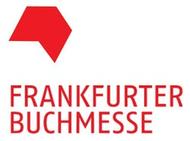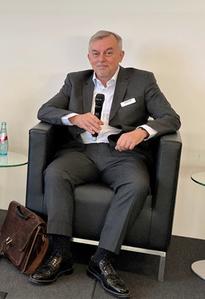 At the Publishing Perspectives' Cost of Doing Business in 2022 panel last week at the Frankfurt Book Fair, moderated by Erin Cox, David Taylor, senior v-p, content acquisition, international at Ingram Content Group, provided a broad view of international business from Ingram's point of view (noting that it's a wholesaler, distributor and POD company with operations in most parts of the world).
At the Publishing Perspectives' Cost of Doing Business in 2022 panel last week at the Frankfurt Book Fair, moderated by Erin Cox, David Taylor, senior v-p, content acquisition, international at Ingram Content Group, provided a broad view of international business from Ingram's point of view (noting that it's a wholesaler, distributor and POD company with operations in most parts of the world).
Business pressures that include general inflation as well as rising paper, labor, freight and energy costs are "everywhere," he said. Rising interest rates even make the cost of money more expensive. Paper availability is also a problem, since many paper mills have converted from making paper to making cardboard to address "the explosion of people buying things online" and companies' need for boxes to ship those products. Finding employees is also difficult. And while print books cost more to make and ship, customers' disposable income is shrinking. He added that in nearly 40 years in the book trade, he's "never seen a situation like this in terms of the economies around the globe."
 |
|
| David Taylor | |
Not surprisingly considering the many cost pressures, the retail price of books is slowly inching up and publishers are cutting back on print runs, Taylor said. In the last several years, "we saw a real boom in print on demand." POD helps cut shipping costs. (He mentioned an Australian publisher that years ago printed books in China, had them shipped to a warehouse in the U.K., and then shipped to Australia.) In general, for many publishers, POD has done away with the old model of "guess how many copies to print," and if it's too many or too few, publishers would wind up pulping books or running out of copies when they were most needed. Now instead of "print a book and and then sell it," publishers can "sell it, and then print." The focus on having a "virtual inventory" allows them to have less capital tied up in stock. The approach also boosts sustainability.
POD allows there to be "many millions of books that don't physically exist until someone wants to buy it." He noted, too, that POD technology continues to improve so that it's nearly impossible to tell the difference between most POD books and traditionally published books. Soon, he added, POD will become good enough to encompass "coffee-table books, both hardback and paperback."
During the pandemic there was "great growth in consumer direct fulfillment" by publishers as well from bricks-and-mortar bookstores. (He praised indies for being "nimble and imaginative.") Market share attributable to online ordering was "turbocharged" in nearly every market. Since the worse days of the pandemic, the percentage of online sales has dropped from its heights but is still above where it was before the pandemic. In Asia, online sales rose "and have not dropped back down," nearly catching up with levels in North America and Europe. He noted, too, that indie bookstores in countries with fixed prices for books can compete better with online competitors.
British sales to Europe have suffered from Brexit, which he sarcastically called "a stroke of genius by our politicians." That damaged "a lot of business," he said. "It's almost disappeared." These days, he continued, "Anyone in the supply chain has to manage their cost base really, really effectively."
Still, despite the strong headwinds, he emphasized that the book trade is "resilient. In times of boom, books don't go through the roof, and in times of depression, they don't drop through the floor." Moreover, he said, "The trade is full of creative and smart people."
He concluded, "It's a really good time to be a publisher and it's a really good time to be a bookseller. More and more books being published, the barriers to entry for publishing have shrunk hugely. There are more publishers around. There are more booksellers around. More Internet bookselling around.... There's quite a bright future for the book trade." --John Mutter

